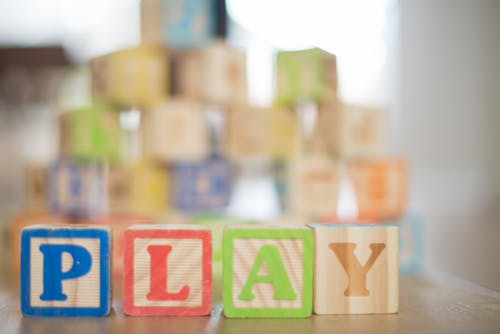
Today at Aaniin library, I watched with interest as a number of preschoolers lined up chairs and other types of seating in our children’s area. With joy, they crawled, walked and hopped through their obstacle course. One little girl screamed in frustration when children in front of her were moving slowly but they did not react so had to wait her turn. When I asked a few of the children: “Where is it possible that you would hit your head if you fell?”, one architect decided to push the cushioned seats farther away from the tables.
Play nurtures children’s creativity, collaboration and problem-solving abilities. It builds strength, coordination and confidence. Play provides an opportunity to learn key social skills such as taking turns, sharing, and cooperating.
Keys to children’s play-based learning:
- Meaningful play is child-directed: Children are intrinsically motivated to understand their world through play. When children choose how to play for themselves, they learn how to make decisions, be creative and problem-solve.
- Play is unstructured and open-ended: While children may plan their play, they also need time and space to be spontaneous or to change direction. Parents must protect a young child’s need for uninterrupted time to play. This time is just as valuable as being scheduled into activities that are adult-planned and directed. Providing open-ended materials and toys also benefits a child’s play. For example, a set of blocks can become vehicles, buildings, instruments and more.
- Play is enjoyable: Children who are having fun in their play are fully immersed in the activity. Remember the last time that you lost track of time (sports, art, cooking, etc.). This is play. Play must be enjoyable for a child to learn and to remember the activity with fondness.
MPL supports children’s learning through play with many drop-in and registered programs such as crafts, Storytime, Baby and Books, Learning Place programs, Maker Club, Games programs, Code Adventures and more.
To learn more about children and play, check out these websites, and this list of materials you can sign out at your local branch.
Why is play important, and how do parents/caregivers best support their child's learning through play?
Additional Resources:
1. Articles for Families on Play (naeyc)
2. 100 Parenting Resources (Canadian Child Care Federation)
3. The Power of Play: A Webinar Series for Parents of Preschoolers


Add a comment to: 3 Keys to Supporting Children to Learn Through Play